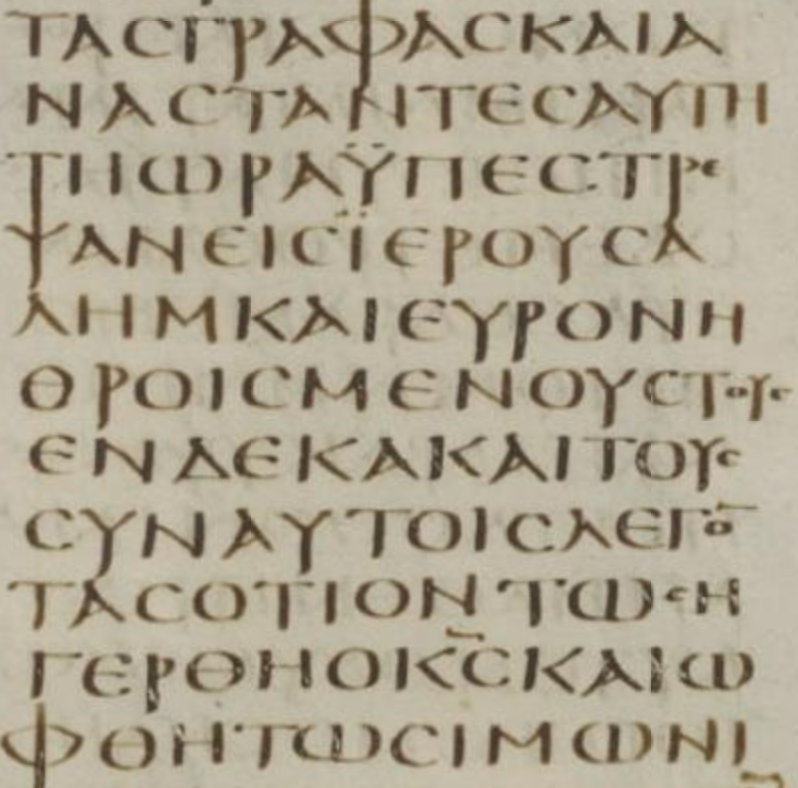

| This page will show the two verses in Luke
where the ancient
expression proclaiming that Jesus was "risen" from the
dead originated, in the UBS5
original Greek, a literal interlinear
translation of the Greek text, the English
translation by Bill Mounce, and
finally some matching images from the Codex
Sinaiticus -- a manuscript of the Christian Bible
written in the middle of the fourth century, which contains
the earliest complete copy of the Christian New
Testament! Note that in this case the manuscripts uses the Greek Nomina Sacra abbreviation KC for the full word 'Kurios' (Lord). A good explanation for properly interpreting some of the Greek word order and meaning can be found in the short article When verse references get in the way (Luke 24:33–34) by Bill Mounce. |
Luke 24:33-34 (UBS5/Interlinear/Mounce) |
|
καὶ
ἀναστάντες
αὐτῇ
τῇ ὥρᾳ
ὑπέστρεψαν
εἰς
Ἰερουσαλήμ,
and having risen up [that] same hour they returned to Jerusalem,
So they got up that very hour
and returned to Jerusalem,
καὶ εὗρον ἠθροισμένους τοὺς ἕνδεκα καὶ τοὺς σὺν αὐτοῖς, and they found gathered together the eleven and those with them
where they found the eleven and
those with them gathered together,
λέγοντας ὅτι ὄντως ἠγέρθη ὁ κύριος καὶ ὤφθη Σίμωνι. saying indeed has risen the Lord and he has appeared to Simon
saying, “The Lord has indeed been
raised and has appeared to Simon!”
|
| [https://biblehub.com/interlinear/luke/24-33.htm] [https://biblehub.com/interlinear/luke/24-34.htm] |
 |